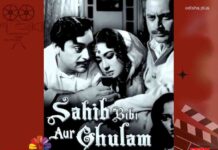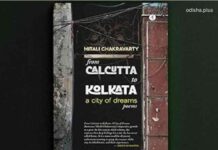Dr. Mrinal Chatterjee
Bankim Chandra Chattopadhyay whose 184th birth anniversary falls on 27 June is widely revered for the song ‘Vande Mataram’ (bow to thee, Mother) which became a mantra of the freedom fighters during freedom movement.
He wrote this poem in 1870s, and included it in his Bengali novel Anandamath, which was published in 1882. The poem was first sung in a political context by Rabindranath Tagore in the 1896 session of the Indian National Congress.
It became a popular marching song for Indian freedom movement. The Constituent Assembly of India adopted “Vande Mataram” as national song on 24 January 1950. However, the Constitution of India does not have any mention of “national song”.
Bankim Chandra was one of the great novelists and poets of India. He is credited to have given a modern shape to Bengali novel writing. He is also the first Indian to have written a novel in English: Rajmohan’s wife, first published in serialised form in 1864. He also wrote essays, satiric pieces, also books on spiritualism.
Bankim Chandra was born in 1838 in the village Kantalpara of the 24 Paraganas District of Bengal. His father Yadav Chandra Chattopadhyay served as Deputy Collector. Bankim Chandra had his early education in Midnapur and at Mohsin College at Hoogly. He was interested in the study of Sanskrit, which stood him in good stead later as a writer.
In 1856, he joined the Presidency College in Calcutta and passed his B.A. Examination in 1859 and appointed as Deputy Collector in the same year. He was in Government service for thirty-two years and retired in 1891. He was a very conscientious worker and took several decisions favouring the interest of common men.
Bankim Chandra began his literary career as a writer of verse. He then turned to fiction. Like Michael Madhusudan Dutt, another great Bengali litterateur, Bankim Chandra began writing prose in English before switching over to his “mother tongue.”
He wrote 14 novels in Bengali. Durgeshnandini, his first Bengali romance, was published in 1865. His famous novels include Kapalkundala (1866), Mrinalini (1869), Vishbriksha (1873), Chandrasekhar (1877), Rajani (1877), Rajsimha (1881), Anand Math (1882) and Devi Chaudhurani (1884). He also wrote essays, treatise of religious, philosophical and spiritual discourses, even satirical pieces, later compiled into a book titled Kamalakanta.
(Journalist turned media academician, the author is Prof Dr. Mrinal Chatterjee presently works as Regional Director of the Eastern India campus of Indian Institute of Mass Communication located at Dhenkanal, Odisha. He also writes fiction and plays. Views are personal.)
Tags: #BankimChandraChattopadhyay #IndiaFreedomMoment #nationalsong #Englishnovels #Indiawritters #ConstituentAssembly



























